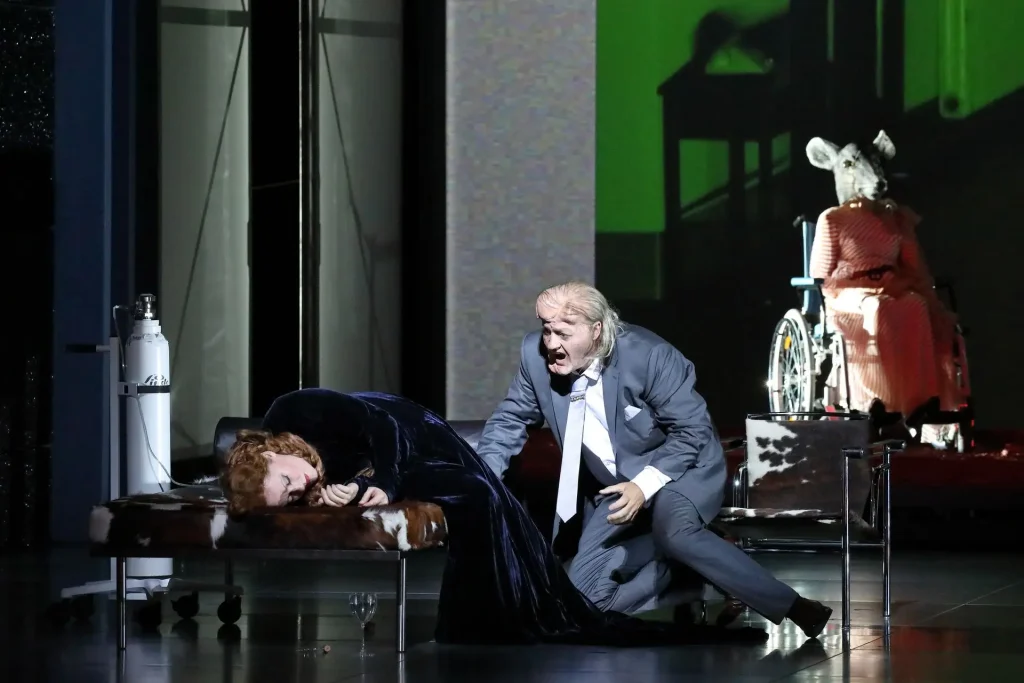Franz Schreker and ‘The Opera of the Marked’: A 20th Century Modern Opera
Franz Schreker – Die Gezeichneten: A 20th Century Modern Opera
Franz Schreker and ‘The Opera of the Marked’

Franz Schreker’s opera Die Gezeichneten (The Marked) is a masterpiece of early-20th-century German opera. It is from a period known as late Romanticism and early Expressionism. Premiered in Frankfurt in 1918, it is Franz Schreker’s most famous work. It is not merely a musical composition, but also a deep exploration of human passions, aesthetics and social isolation.
The story is set in Venice and follows a dark tale
The story is set in Renaissance Venice. The protagonist is Alviano Salvago, a wealthy but disfigured aristocrat who feels isolated from the world. In an attempt to overcome his lack of beauty, he has created an artistic sanctuary on the island of Orbello, which he offers as a gift to the city. However, his friends, led by Count Tamare, have transformed it into a centre for decadent orgies, where young women have been known to disappear.
At the heart of the story is Carlotta Nardi, a painter with a fatal illness who is obsessed with beauty. She refuses to paint portraits of aristocrats, believing their beauty to be superficial. Instead, she turns to Salvago, whom she sees as possessing a kind of “inner” beauty.
Though he is initially in love with her, Salvago pushes Carlotta away, fearing that his “curse” will be passed on to her. Nevertheless, drawn to his spiritual beauty, Carlotta tries to approach him. Tired of being rejected, Tamare captures her and imprisons her on Orbello, where he rapes her. When Salvago discovers the truth, he tries to save her, but it is too late. In the tragic finale, Carlotta dies and Salvago, cursed and isolated, falls into despair.
The music: An Ocean of Sounds and Emotions
The music of Die Gezeichneten is one of its most fascinating features. Franz Schreker makes use of colourful and rich orchestration, drawing influence from Wagner, Richard Strauss and Debussy. His fluid and atmospheric music uses leitmotifs to express the characters’ psychological states. It ranges from lyrical, dreamlike moments to intensely dramatic and passionate ones.
One of the most impressive elements is the vocal style, with Franz Schreker demanding that singers express a wide range of feelings, from whispers to powerful outbreaks. His music is so complex that it is often considered ‘unfriendly’ to the human voice, presenting a significant challenge to performers.
Symbolism and Themes: The ‘Curse’ of Being Different
The opera’s main theme is the isolation and social condemnation experienced by individuals who are “different”. Salvago, with his physical disfigurement, represents difference; he is a “marked” person who cannot fit into society. Carlotta, with her fatal illness, is also ‘marked’ as she seeks inner truth.
Franz Schreker explores the relationship between art and morality. Salvago believes that art should be pure and innocent, however his friends use it as an excuse for immorality. The opera raises questions about whether beauty is objective or subjective, and whether external appearance can hide internal corruption.
The title ‘Die Gezeichneten’ has a profound double meaning. Not only does it refer to the ‘marked’ protagonists, but it also refers to artists and intellectuals who felt that they were branded by society. Franz Schreker, a Jewish composer at the dawn of Nazism, may also have felt the ‘curse’ of being different.
The Opera’s heritage
Although Die Gezeichneten was extremely popular upon its premiere, Franz Schreker’s music was labelled “degenerate” and banned with the rise of Nazism. This resulted in it disappearing from opera houses’ programmes for many decades.
Today, however, the opera is gradually being rediscovered and is widely recognised as one of the most important works of the period. Its stunning orchestration and deep psychological symbolism present a challenge and a discovery for modern audiences. ‘Die Gezeichneten’ is a dark but beautiful work that speaks to the human condition and the wounds that ‘mark’ us forever.


